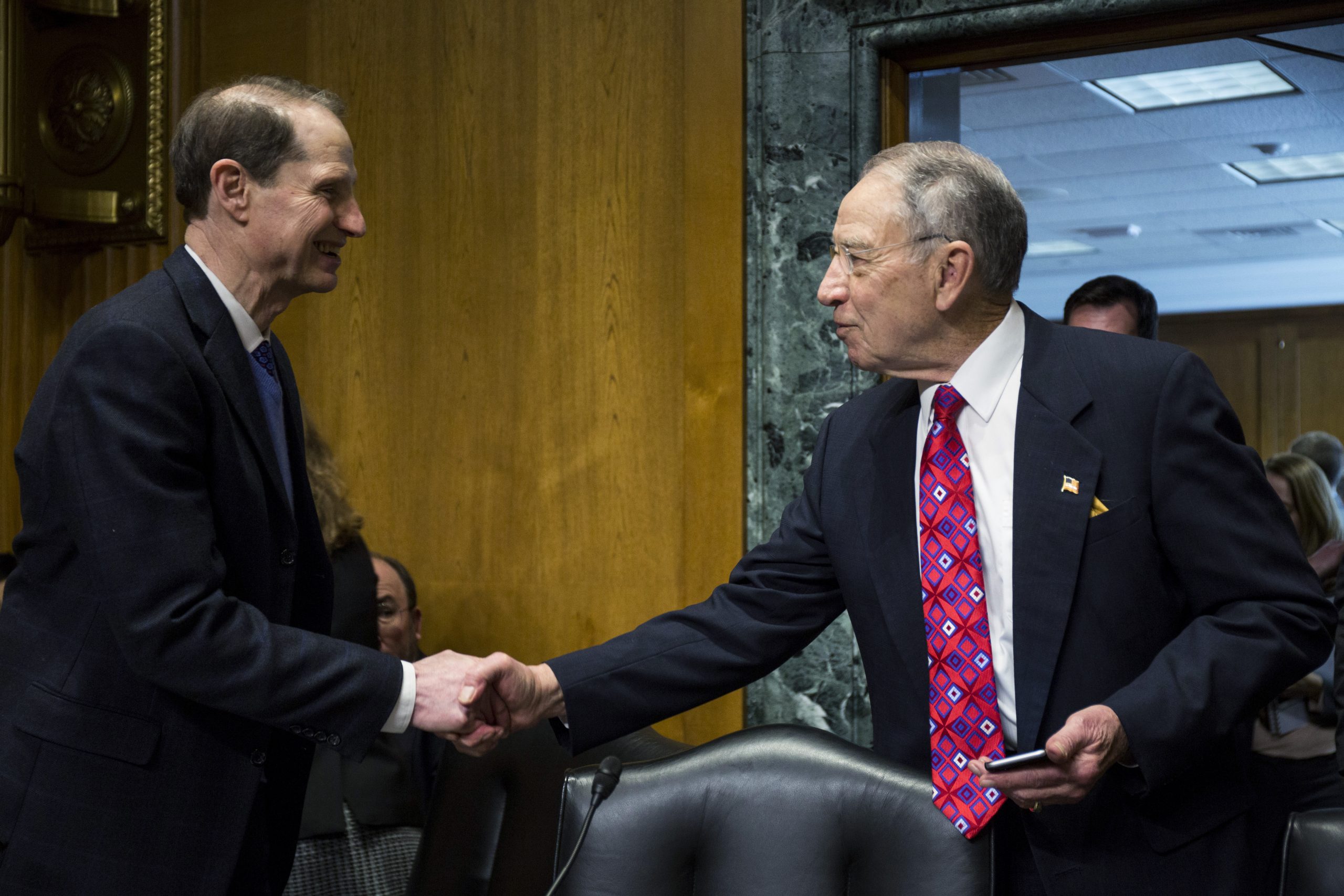
A bipartisan group of lawmakers introduced legislation Wednesday to enable small businesses to deduct their expenses even if they have received a loan from the federal government’s Paycheck Protection Protection Program that was later forgiven.
The U.S. Small Business Administration’s Paycheck Protection Program was included as part of the CARES Act that Congress passed in April in response to the novel coronavirus pandemic. It aimed to provide funding to small businesses, giving them SBA-backed loans that the federal government would ultimately forgive as long as they kept their employees on the payroll for eight weeks.
The program has been a source of controversy, however, as many small businesses were shut out of the program and much of the money went to larger companies. The initial $349 billion in funding for the PPP quickly ran out, and Congress needed to approve an additional $320 billion in funding last month.
Last Thursday, the IRS issued a notice that said small businesses couldn’t deduct these expenses (see story). It indicates that no tax deduction is allowed for an expense that’s otherwise deductible if the payment of the expense results in forgiveness of a PPP-covered loan.
However, several lawmakers, including Senate Finance Committee chairman Chuck Grassley, R-Iowa, and ranking member Ron Wyden, D-Ore. (pictured), wrote letters to Treasury Secretary Steven Mnuchin this week pointing out that the notice and other IRS guidance related to the Employee Retention Credit in the CARES Act runs contrary to congressional intent (see our story). On Wednesday, some of the same lawmakers introduced a bill that would effectively nullify the IRS notice.
Grassley, Wyden, along with Sen. John Cornyn, R-Texas, Marco Rubio, R-Fla., and Tom Carper, D-Del., introduced the Small Business Expense Protection Act, which would clarify the PPP so small businesses could still deduct the expenses they have paid with a forgiven PPP loan from their taxes. Under the bill, the receipt and forgiveness of coronavirus assistance through the PPP would not affect the deductibility of ordinary business expenses.
“When we developed and passed the Paycheck Protection Program, our intent was clearly to make sure small businesses had the liquidity and the help they needed to get through these difficult times,” Grassley said in a statement. “Unfortunately, Treasury and the IRS interpreted the law in a way that’s preventing businesses from deducting expenses associated with PPP loans. That’s just the opposite of what we intended and should be fixed. This bill will do just that.”
He and the other senators noted that the goal of the PPP was to maximize small businesses’ ability to maintain liquidity, retain their employees and recover from the pandemic as soon as possible.
“Treasury’s guidance barring deductions for expenses paid by PPP loans is a gut punch for businesses struggling to stay afloat,” said Wyden in a statement. “It defies common sense for Treasury to provide help on the front end, but then take it away on the back end. Our bipartisan bill would fix this mistake and ensure businesses feel confident using PPP funds to keep their workers employed.”
The Small Business Expense Protection Act is supported by the American Institute of CPAs. The AICPA expressed its support in a letter Wednesday thanking the lawmakers.
“It is clear that Congress intended to allow a full deduction for PPP related expenses,” said the letter. “This important legislation helps ensure that small business taxpayers affected by the ongoing pandemic will receive the full intended benefits of the CARES Act.”
AICPA vice president of taxation Edward Karl expanded on the letter. “We’re grateful to Senators Cornyn, Wyden, Grassley, Carper and Rubio for their leadership on this issue and their support for small business across the country,” he said in a statement. “Small businesses are the backbone of the American economy and right now they are struggling. This bill honors the intent of the CARES Act and the PPP.”
According to the Small Business Administration, more than 2 million loans totaling over $175 billion have been made to small businesses since the second round of PPP loan processing began on April 27, surpassing the number of all loans made in the first round of PPP loans. The average loan size in Round 2 was estimated at $79,000, and almost 500,000 of the loans were made by lenders with less than $1 billion in assets and non-banks. Since this program started, the SBA has processed more than 3.8 million loans, providing more than half a trillion dollars of economic support.


